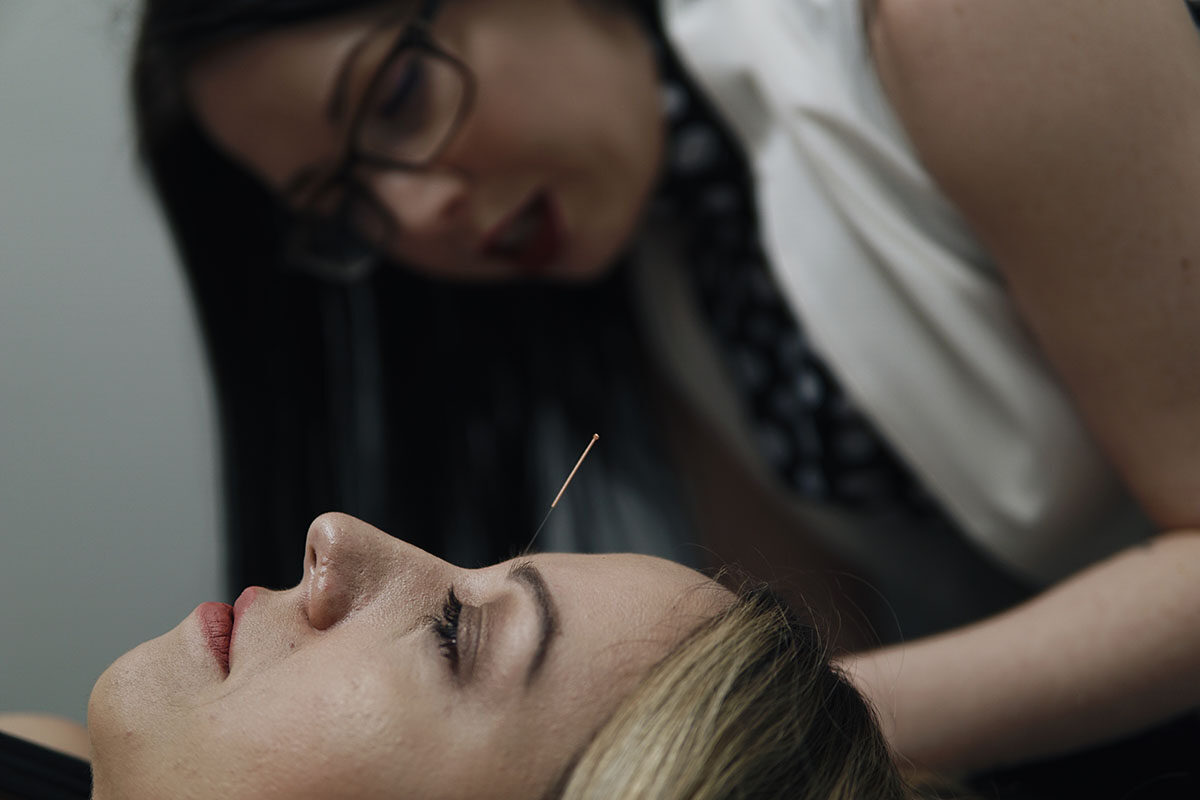Acupuncture Treatments
Acupuncture is the practice of inserting and manipulating needles into the superficial skin, subcutaneous tissue, and muscles of the body at particular acupuncture points.
Physiologically, the needles are inserted and trigger a response from the nervous system to communicate with the endocrine system.
These two work together and stimulate the body’s ability to heal itself and improve its function in preventing future illness within the body.
It has been successful in treating various types of illness and dysfunction in the body since before 3,000 B.C.

What does acupuncture treat?
Acupuncture can benefit your health. It's been used to treat musculoskeletal injuries, neurological disorders, circulatory disorders, gastrointestinal disorders, respiratory disorders, immune illnesses, psychological disorders, addictions, and dermatological conditions.
Acupuncture can be complementary to many western treatments. It is especially good at managing pain including chronic pain and therefore is ideal if you've just had surgery, an injury, or a clinical procedure.
In the area of women’s health, acupuncture can help with PMS, painful periods, PCOS and Endometriosis. It can also be used to help in pregnancy including labour preparation, labour and delivery pain management, and is complementary following most fertility procedures.
Many oncology patients use acupuncture to help with some of the side effects of chemotherapy or radiation, such as nausea and fatigue.
Incorporating acupuncture into your life on a regular basis helps normalize stress hormone levels and maintain a state of overall good health. Acupuncture can help patients sleep better, relieve feelings of anxiety and depression, and manage day-to-day stress.

Book with Dr. Alyssa Cochrane, Registered Acupuncturist
Dr. Cochrane sees the difference acupuncture can make in the lives of her patients. To see how acupuncture can benefit your heath, book an initial acupuncture treatment today!

Book with Dr. Viktoriia Taylor, Registered Acupuncturist
Dr. Viktoriia, brings to her practice over 10 years of knowledge and experience in the western medical field as a medical doctor in Ukraine.
ABOUT MPH
HOURS OF OPERATION
Mon: 7AM - 7PMTues: 7AM - 7PM
Wed: 7AM - 8PM
Thurs: 7AM - 7PM
Fri: 7AM - 5PM
Sat: 7AM - 2PM
Sun: 10AM - 3PM
Copyright © 2023 Movement Performance & Health. All rights reserved.

